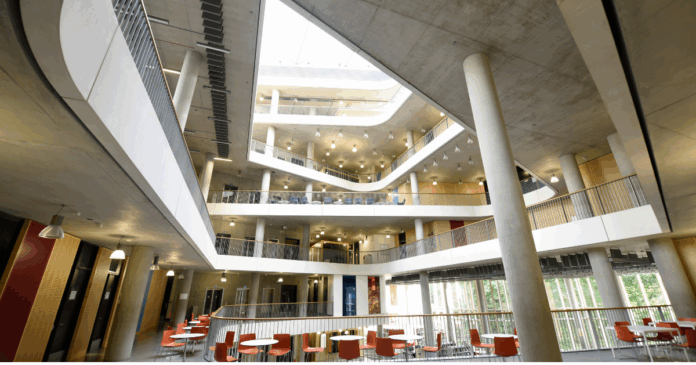The Philippine government is eyeing foreign schools to build campuses in the country in exchange for tax breaks and other incentives.
The Board of Investments (BOI), an attached agency under the Department of Trade and Industry (DTI), is aiming to attract foreign higher education institutions (FHEIs) to establish branch campuses in the Philippines through BOI Memorandum Circular 2024-08.
Aligned with Republic Act 11448, or the Transnational Higher Education Act, the BOI’s Academe-Industry Matching (AIM!) program aims to address the skills gap between the education sector and industry needs.
MC 2024-08 provides Tier 1 investment incentives to FHEIs that partner with Philippine entities under a 60-40 ownership arrangement in favor of the local partner. These tax incentives include four to six years of income tax holiday (a temporary exemption from paying corporate income tax), and 10 to 15 years of enhanced deductions on operating expenses such as labor, training, and infrastructure.
The policy also introduces the development of “Education Cities,” or dedicated zones built to host higher education campuses alongside support infrastructure. These are seen as integrated environments that combine academic, residential, and commercial spaces designed to attract both local and international students.
These facilities include research centers, healthcare and athletic complexes, cultural venues, and digital infrastructure to support modern learning systems – developing cities around educational institutions.
This move by the Philippine government reflects similar efforts by other ASEAN countries that have expanded their education infrastructure.
Malaysia’s EduCity Iskandar, for instance, is a 300-acre development in Johor Bahru that hosts several international universities and research institutions. The Malaysian government offers tax exemptions and streamlined processes for foreign schools operating within EduCity.
In Vietnam, Decree 124/2024/ND-CP allows foreign universities ranked among the global top 500 to set up branches, provided they meet minimum investment thresholds.
Dubai, meanwhile, has long hosted foreign academic institutions in designated free zones like Knowledge Village and Academic City, offering full foreign ownership and freedom from local accreditation constraints.
By offering similar investment incentives, the Philippines seeks to position itself as a competitive regional hub for international education while expanding access to high-quality academic programs across the country.



